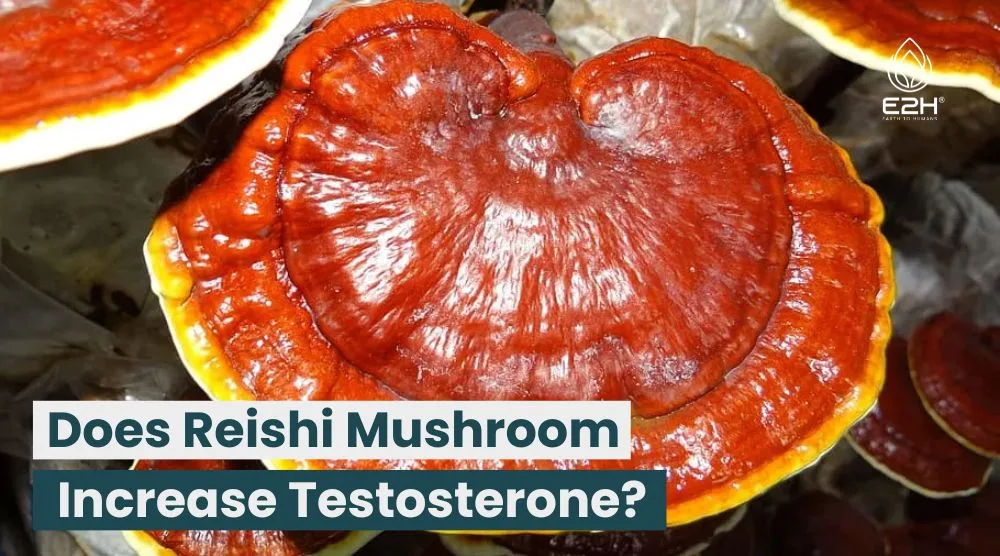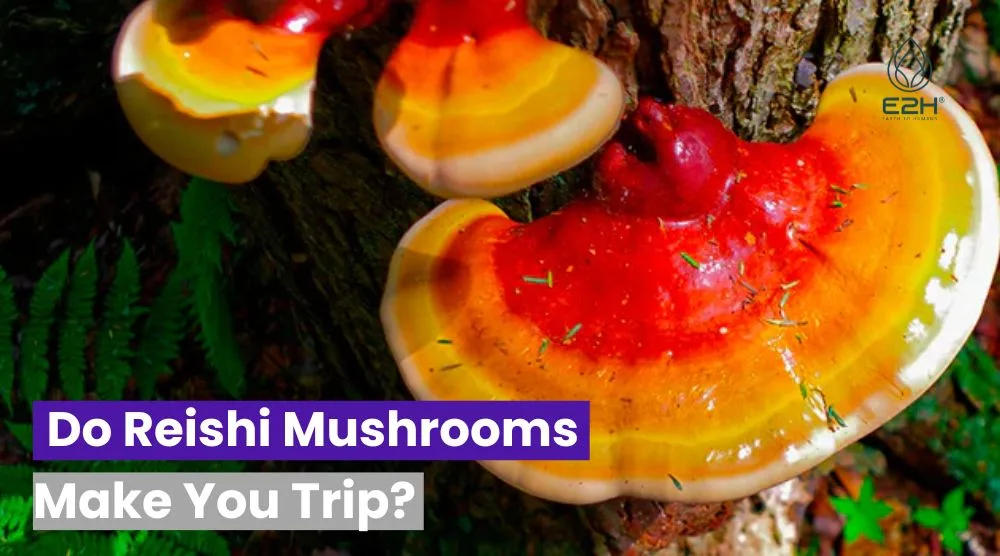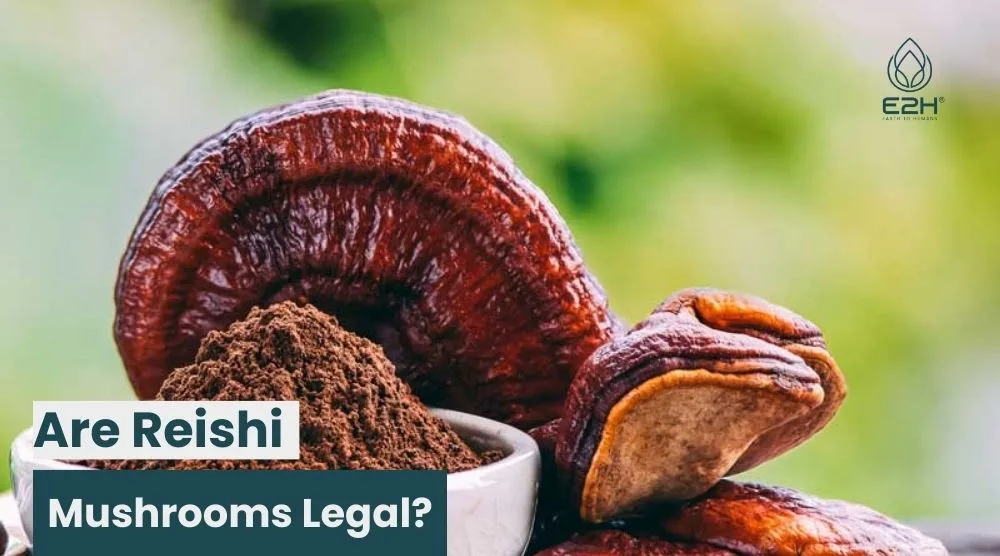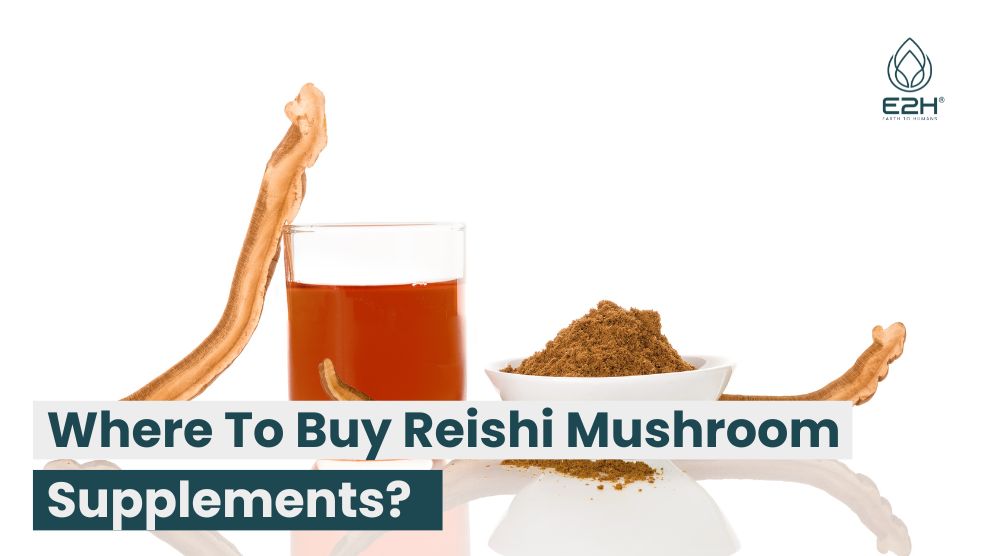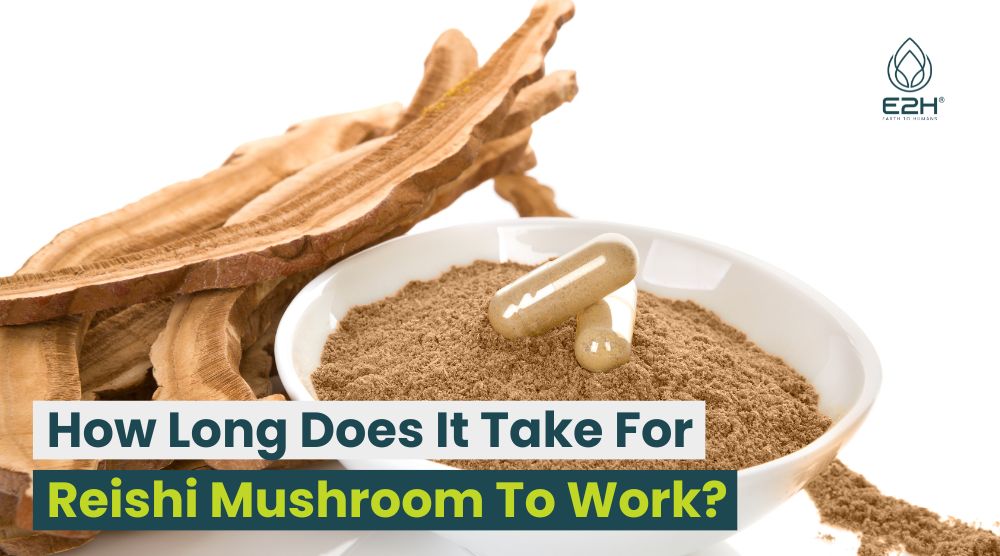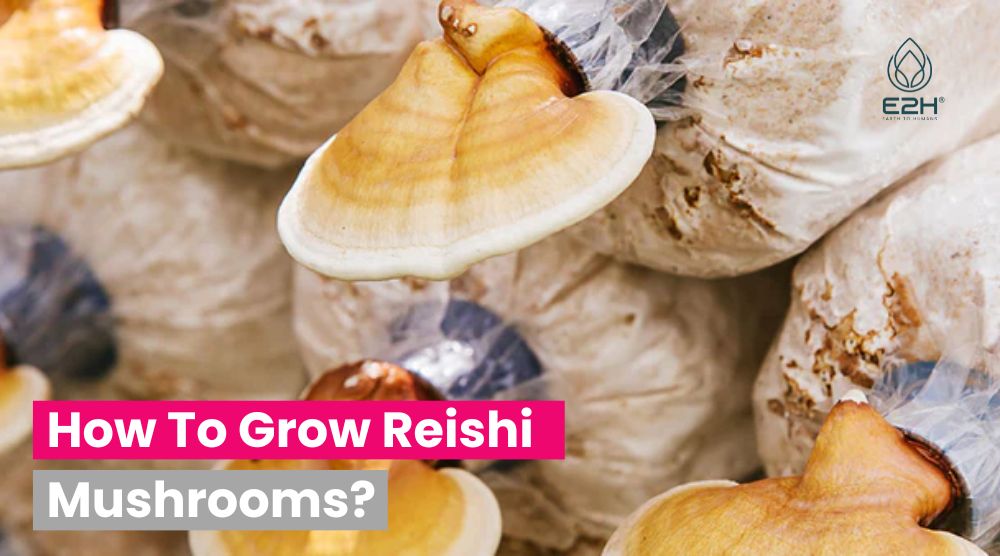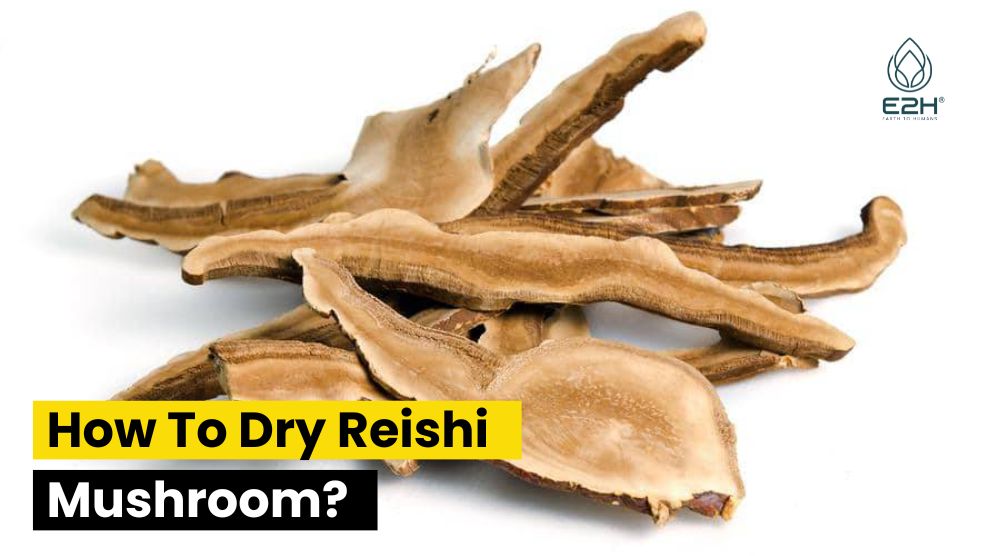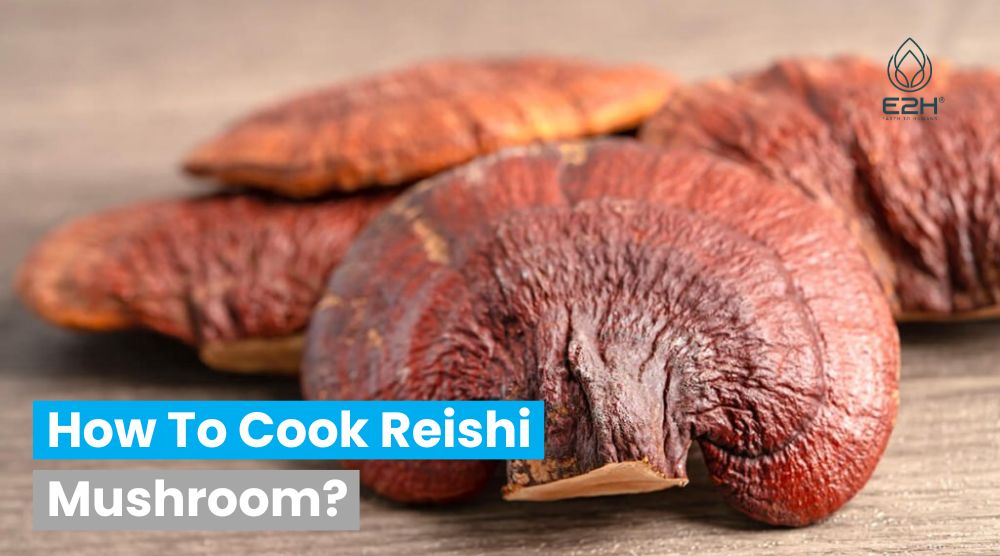Does Reishi Mushroom Increase Testosterone: No, Reishi mushroom does not increase testosterone. While it’s popular for its potential health benefits, research hasn’t shown a direct impact on testosterone levels.
To understand its effects and benefits, let’s explore the science behind Reishi mushroom and its role in overall well-being.
Why Is There A Growing Popularity And Interest In The Potential Health Benefits Of Reishi Mushroom?
The growing popularity and interest in the potential health benefits of Reishi mushroom can be attributed to its rich history in traditional herbal medicine and a surge in scientific research validating its therapeutic properties. Reishi mushroom, scientifically known as Ganoderma lucidum, has been used for centuries in Chinese and Japanese medicine for its believed immune-boosting and anti-inflammatory effects.
- Historical Significance: Reishi’s prominence in ancient healing practices has sparked curiosity. Historical accounts of its use have contributed to its resurgence in modern wellness culture.
- Immunomodulatory Effects: Research suggests that Reishi may modulate the immune system, enhancing its ability to defend against infections and diseases.
- Adaptogenic Qualities: As an adaptogen, Reishi may help the body cope with stress and maintain balance, garnering attention in a society increasingly focused on stress management.
- Antioxidant Properties: The mushroom’s potent antioxidants may combat oxidative stress, potentially reducing the risk of chronic diseases and promoting overall well-being.
- Heart Health: Some studies hint at Reishi’s potential to support cardiovascular health by positively influencing cholesterol levels and blood pressure.
- Anti-Inflammatory Potential: Reishi’s anti-inflammatory properties attract interest, as chronic inflammation is linked to various health issues, including autoimmune conditions.
- Cancer Research: Preliminary research exploring Reishi’s role in cancer prevention and treatment has fueled interest, although more studies are needed for conclusive evidence.
- Nutrient Content: Reishi contains essential nutrients, such as polysaccharides, triterpenes, and amino acids, contributing to its perceived health benefits.
- Increased Availability: The mushroom is now more accessible through supplements and products, facilitating its integration into daily health routines.
- Global Wellness Trend: The current trend toward holistic wellness and natural remedies aligns with Reishi’s reputation as a medicinal mushroom, contributing to its rising popularity.
Does Reishi Mushroom Increase Testosterone Levels?
No, current research does not provide conclusive evidence that Reishi mushroom increases testosterone levels. While Reishi is renowned for its potential health benefits, studies examining its impact on testosterone specifically are limited.
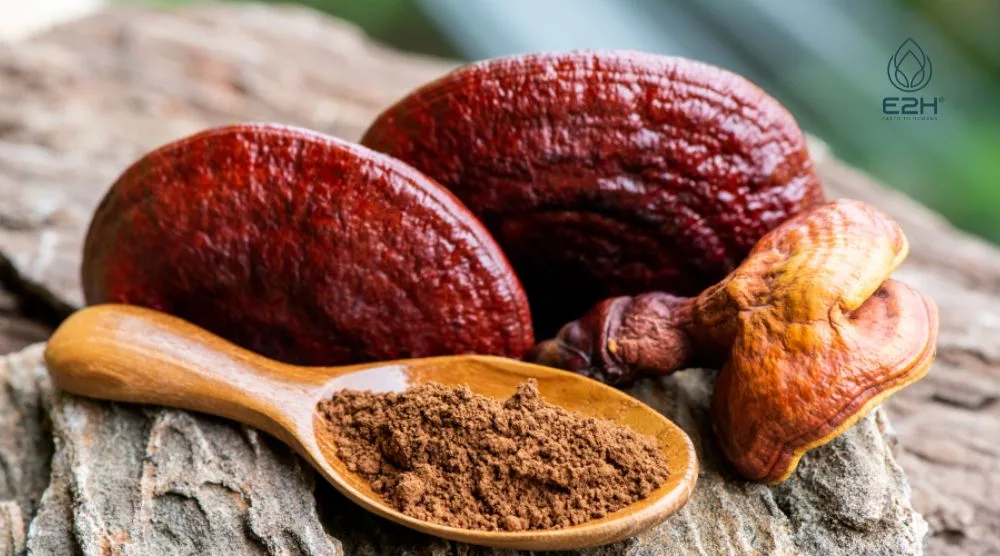
However, Reishi’s adaptogenic and immunomodulatory properties suggest potential indirect benefits for overall well-being. Individuals considering Reishi supplementation should consult healthcare professionals for personalized advice, especially if addressing testosterone-related concerns.
Scientific understanding of Reishi’s effects on hormones requires further exploration more research to establish definitive conclusions more research regarding testosterone modulation.
Is Reishi Good For Testosterone?
While Reishi mushroom is widely acknowledged for its potential health benefits, current scientific evidence does not strongly support its direct positive impact on testosterone levels. Limited studies suggest positive effect of Reishi’s adaptogenic and immune-modulating properties, which may contribute to overall well-being.
However, concrete evidence specifically linking Reishi to testosterone enhancement is lacking. Individuals seeking testosterone-related benefits should consult healthcare professionals and consider comprehensive lifestyle factors. As research evolves, it’s essential to stay informed about Reishi’s role in hormonal health and make decisions based on the latest scientific findings.
Key Takeaways Regarding Reishi And Testosterone
Key Takeaways Regarding Reishi and Testosterone:
- Limited Evidence: Scientific studies on Reishi mushroom’s impact on testosterone are scarce, providing inconclusive evidence regarding its direct influence on hormone levels.
- Adaptogenic Properties: Reishi is recognized for its adaptogenic qualities, suggesting potential benefits in managing stress, which indirectly may contribute to hormonal balance.
- Immunomodulation: Research indicates Reishi’s potential to modulate the immune system, offering broader health advantages but not specifically targeting testosterone.
- Holistic Wellness: Reishi’s overall health benefits make it a valuable addition to holistic wellness routines, even if not proven to boost testosterone.
- Consult Healthcare Professionals: Individuals considering Reishi for hormonal concerns should seek guidance from healthcare professionals for personalized advice.
- Ongoing Research: The scientific community continues to explore Reishi’s multifaceted effects, necessitating vigilance for updated information on its role in hormonal health.
Does Reishi Mushroom Block Dht?
Research on Reishi mushroom’s impact on DHT levels (dihydrotestosterone) is limited, and there’s no conclusive evidence supporting the claim that Reishi blocks DHT. DHT is a hormone associated with hair loss, and while Reishi is renowned for its potential health benefits, its specific influence on DHT levels remains uncertain.
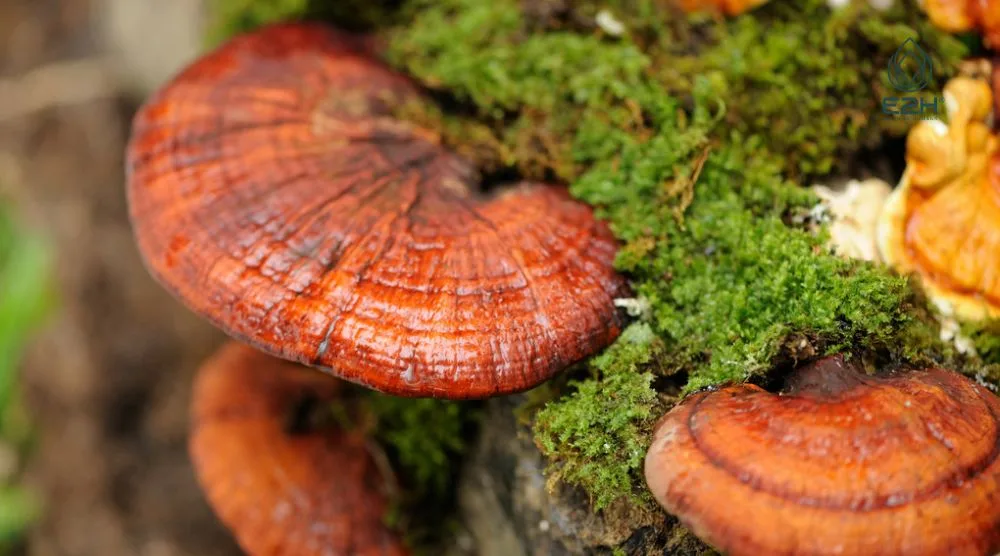
Individuals concerned about DHT-related issues, such as hair loss, should explore proven treatments and consult healthcare professionals for personalized advice. Further research is needed to establish Reishi’s role in DHT modulation definitively.
How Does Reishi Reduce Dht For Hair Loss?
Currently, there is insufficient scientific evidence to support the claim that using Reishi mushrooms reduces DHT for hair loss. While Reishi mushroom is recognized for potential health benefits, its specific mechanisms in DHT modulation lack clear scientific validation.
Individuals seeking solutions for hair loss should focus on proven treatments and consult healthcare professionals for personalized advice. The understanding of Reishi’s role cognitive function in hair health requires further research to establish concrete connections between Reishi and DHT reduction.
How Does Reishi Reduce The Risk Of Prostate Cancer?
Research on Reishi mushroom’s role in reducing the risk of prostate and breast cancer, is ongoing but not yet conclusive. Preliminary studies suggest that Reishi’s bioactive compounds, such active compounds such as polysaccharides and triterpenes, may exhibit anti-cancer properties.
These compounds potentially inhibit cancer cell growth and promote apoptosis. However, more rigorous research is needed to validate these findings. Individuals concerned about breast cancer prostate health should prioritize proven preventive measures, consult healthcare professionals, and stay informed as scientific understanding of human breast cancer cells and prostate cancer cells further evolves.
Can Reishi Be Added To The Diet For Hormonal Balance?
Yes, Reishi mushroom can be added to the diet as part of a holistic approach to support hormonal balance. It contains bioactive compounds that may have adaptogenic and immunomodulatory effects, potentially contributing to overall well-being.
However, it’s crucial to emphasize that dietary changes alone may not be sufficient, and consulting healthcare professionals for personalized advice on hormonal balance is recommended. Incorporating Reishi into a balanced diet complements a healthy lifestyle, promoting overall wellness.
Is Reishi Mushroom Estrogenic?
Reishi mushroom is not considered strongly estrogenic. While it contains compounds with mild phytoestrogenic properties, the overall impact on estrogen levels is minimal. These compounds may interact with estrogen receptors, but research suggests that the Reishi mushroom’s effects on hormonal balance androgen hormones are complex and nuanced.
As with any dietary supplement, individuals with specific health concerns or conditions should consult healthcare professionals to ensure a balanced approach to hormone regulation.
Are There Risks Associated With Reishi?
Yes, while Reishi is generally considered safe, there are potential risks. Allergic reactions may occur, especially in individuals sensitive to mushrooms. Additionally, Reishi may interact with certain medications, impacting their effectiveness.
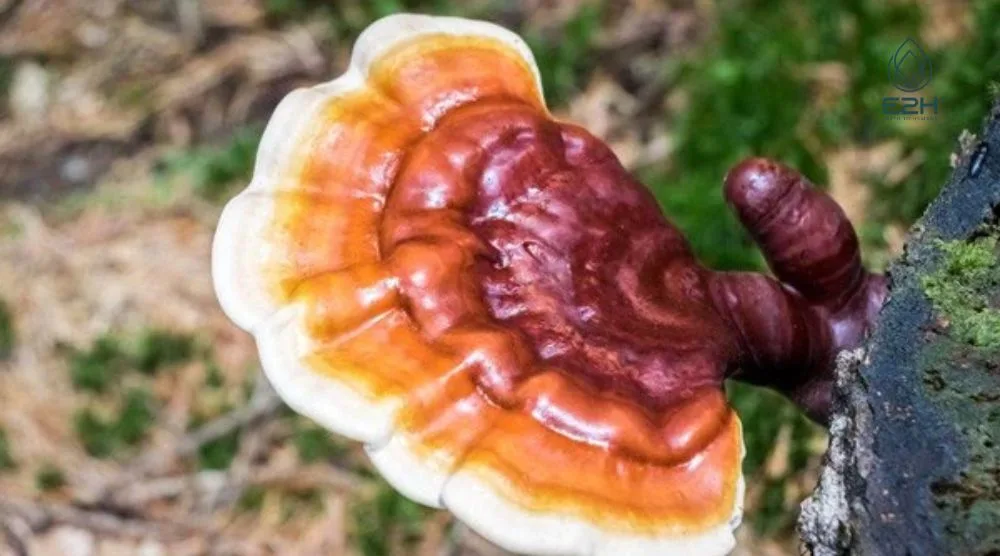
Excessive consumption may lead to digestive issues. Pregnant and breastfeeding women, as well as those with pre-existing conditions, should consult healthcare professionals before incorporating Reishi into their routines. It’s essential to prioritize moderation, awareness of individual health status, and professional guidance for optimal safety.
What Are The Benefits Of Reishi Mushrooms?
Reishi mushrooms offer various potential health benefits:
- Immune Support: Reishi contains compounds that may enhance immune function, aiding the body in defending against infections.
- Adaptogenic Properties: Its adaptogenic nature helps the body adapt to stress, potentially supporting overall well-being.
- Antioxidant Effects: Reishi’s antioxidants may combat oxidative stress, potentially reducing the risk of chronic diseases.
- Heart Health: Studies suggest Reishi may positively influence cholesterol levels and blood pressure, promoting cardiovascular health.
- Anti-Inflammatory Potential: The mushroom’s anti-inflammatory properties may contribute to reducing inflammation in the body.
- Cancer Research: Preliminary research explores Reishi’s role in cancer prevention and treatment, although more studies are needed.
- Quality Sleep: Some users report improved sleep quality, possibly linked to Reishi’s calming effects.
- Nutrient Content: Reishi contains essential nutrients like polysaccharides, triterpenes, and amino acids, contributing to its perceived health benefits.
Should Men Take Reishi?
Yes, men can consider taking Reishi as part of a balanced approach to wellness. It may offer potential benefits such as: immune system support, stress adaptation, and cardiovascular health. However, individual responses vary, and consulting healthcare professionals before incorporating Reishi into a routine is advisable. Men with specific health concerns or those on medications should seek personalized guidance to ensure safe and effective integration into their overall health regimen.
FAQs
Does Reishi mushroom enhance testosterone production?
Reishi’s impact on testosterone is inconclusive. Limited research suggests indirect benefits on overall well-being without specific testosterone modulation.
Can Reishi be a natural testosterone booster?
Scientific evidence is insufficient to classify Reishi as a direct testosterone booster. Its adaptogenic and immune-modulating properties may contribute to general health.
Are there side effects of Reishi on testosterone levels?
Research indicates no significant side effects on testosterone levels. However, individual responses may vary, and consulting healthcare professionals is advisable.
How long does it take for Reishi to affect testosterone?
The timeline for any potential impact on testosterone is unclear. Studies on Reishi’s hormonal effects are limited, and results may vary.
Should individuals with low testosterone consider Reishi supplements?
While Reishi is recognized for health benefits, specific recommendations for low testosterone require further research. Consulting healthcare professionals is crucial for personalized advice.
Conclusion
While Reishi mushroom’s potential health benefits are promising, evidence supporting its direct influence on testosterone remains inconclusive. It’s crucial to approach health decisions with an informed mindset. Incorporating more Reishi mushrooms into a balanced lifestyle may contribute to overall well-being, but for specific concerns like testosterone, consultation with healthcare professionals ensures the best path forward. Stay informed, embrace holistic wellness, and consult experts for personalized guidance on your health journey.
